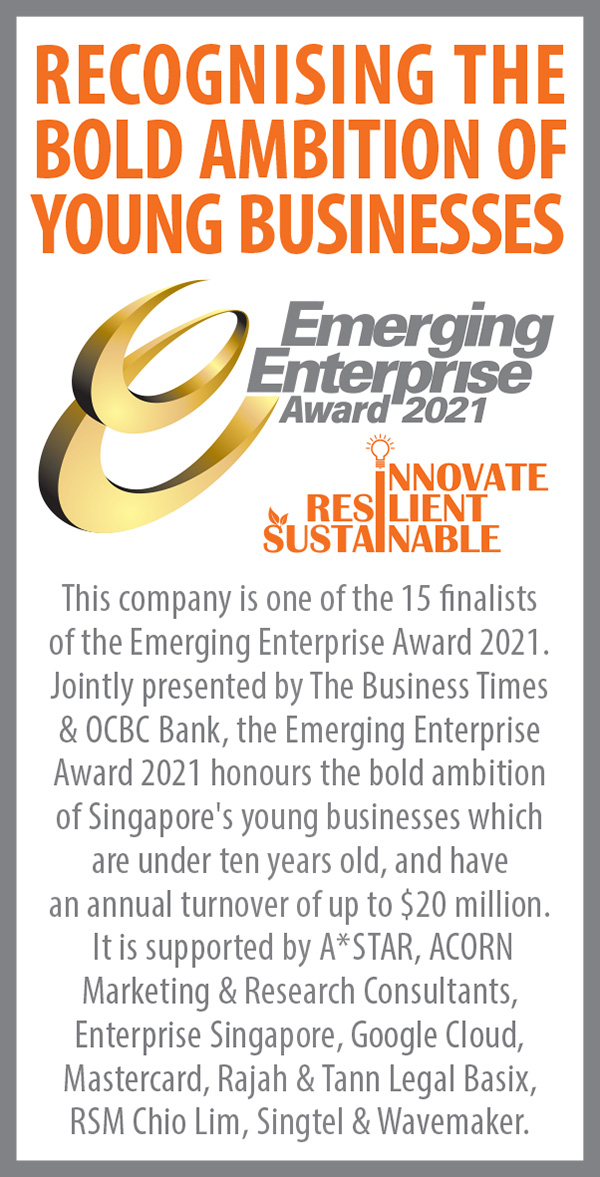IF THERE was ever a good time to not be a commercial company just yet, that time would probably be now, when the world is in the middle of a once-in-a-century pandemic, said Sandhya Sriram, the co-founder and chief executive officer of Shiok Meats.
This is a start-up that uses stem cells to cultivate seafood in a laboratory, in the hope of creating a sustainable source of food that does not involve the killing of more animals.
The company has raised about US$30 million in investment funding since it was founded in 2018 and counts Asian food giants Woowa Brothers, CJ CheilJedang and Vietnam's top seafood exporter Vinh Hoan among its investors.
"I'm actually glad that we are not in the market yet, (and that) we are not a commercial company yet, because that would have been another nightmare," Dr Sandhya said in an interview with The Business Times, when asked about the impact of Covid-19 on the company.
"We are still an R&D (research and development) company, and we are still figuring out how to scale up and get to that market in the next 18 months," she added.
"If I already had a product in the market, it would have been much harder to keep that month-on-month revenue and to make sure sales are fine and so on."
This is because the pandemic has disrupted global supply chains, leading to delays in receiving equipment and other materials as countries go in and out of lockdowns, stymieing the company's progress by about 6 months.
"There were longer lead times on the import of some of our main equipment - especially because the pharma and vaccine industry also utilises them. The key was to plan our R&D around the delay so none of the processes were hampered," said Dr Sandhya.
This meant that the company's scientists and researchers, who are unable to work from home, have had to split into teams to work different shifts, including overnight.
Hiring has been also been a challenge at this time due to the travel and border restrictions, although the company quintupled its team to 35 people through the pandemic, Dr Sandhya said.
But this very disruption has also, at the same time, forced many people to reflect on the sustainability of their consumerist lifestyles.
"People have been at home more, they have been reading a lot more, and have been more exposed to news and media coverage and so on. What has happened is people have realised that the food system needs improvement, needs an uphaul, and everyone needs to find a better solution to their sources of food," she said.
In its own way, the pandemic has stepped up consumer education on the sustainable food industry, and the disruption to logistics and food supply chains has nudged people to consider regional and local products.
"It's great because it adds on to all the efforts that we put together as an industry to educate consumers," said Dr Sandhya.
Not straining the environment
With the world population projected to reach 10 billion from over 7.7 billion currently, the need for sustainable, nutritious and affordable food that does not further strain the environment is critical, she said.
"Instead of factory farming and setting up large plots of land and using a lot of energy and resources, what we do is we grow meat and seafood using stem cells in large stainless steel tanks, much like in a brewery," she said, noting that the process is also similar to how most other food products are manufactured.
A vegetarian herself, she added: "This is environment-friendly, it's sustainable because we don't kill animals - there's no animal cruelty. We don't use any chemicals or antibiotics."
In early 2019, Shiok Meats unveiled its first prototype - 8 shrimp dumplings (siew mai) that cost S$5,000 to produce.
Most of that cost came from the nutrient solution, but over the last 2 years, the company has been working on its own in-house culture media.
"I can tell you with confidence that we have been able to bring down the costs and we are on track to hit US$50 per kilo at the time of launch by working with many different food-grade components and plant-based ingredients that have a potential to yield at scale and at lower price points," said Dr Sandhya.
Commercial launch has been scheduled for 2023, with cultivated crustaceans, including shrimp, crab or lobster, expected on the menu.
Likely to be in "minced form", the final product will be launched in a "premium restaurant" in Singapore, she said.
On Nov 23, the company inaugurated its mini R&D plant in the presence of Sustainability and the Environment Minister Grace Fu, who described the occasion as a "significant milestone" and one that validates the company's "unique cellular agriculture technology".
Meanwhile, the company's first manufacturing plant is in the works next year.
An important next step for Shiok Meats is to seek regulatory approval for the products ahead of the launch, a process that Dr Sandhya described as "more of a focus than a challenge".
Early engagement
At the inauguration ceremony, Fu urged companies, including Shiok Meats, to engage the Singapore Food Agency early in their development process of novel food products so that it can facilitate the regulatory approval process.
So far, Singapore is the first and only country to grant regulatory approval for cultured chicken meat.
Said Dr Sandhya: "Singapore is a small market, but it's a great market to start off and launch with. We're definitely looking at the larger South-east Asia, the Asia-Pacific and eventually, global markets.
"But I'm not going to sugarcoat it: It is going to take us a while to get to those markets, especially given the fact that since this is a novel product. We need to look at regulatory approval in each country."





